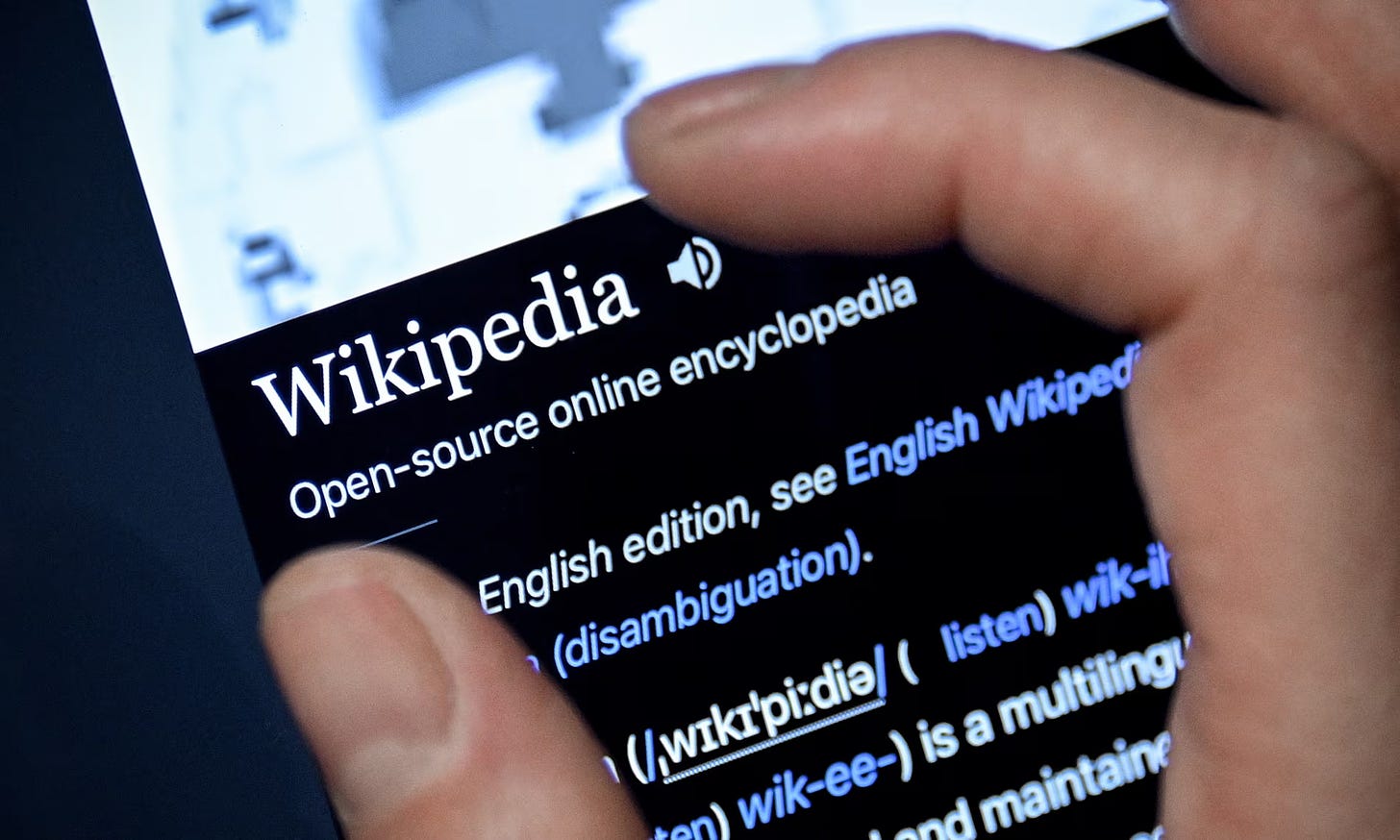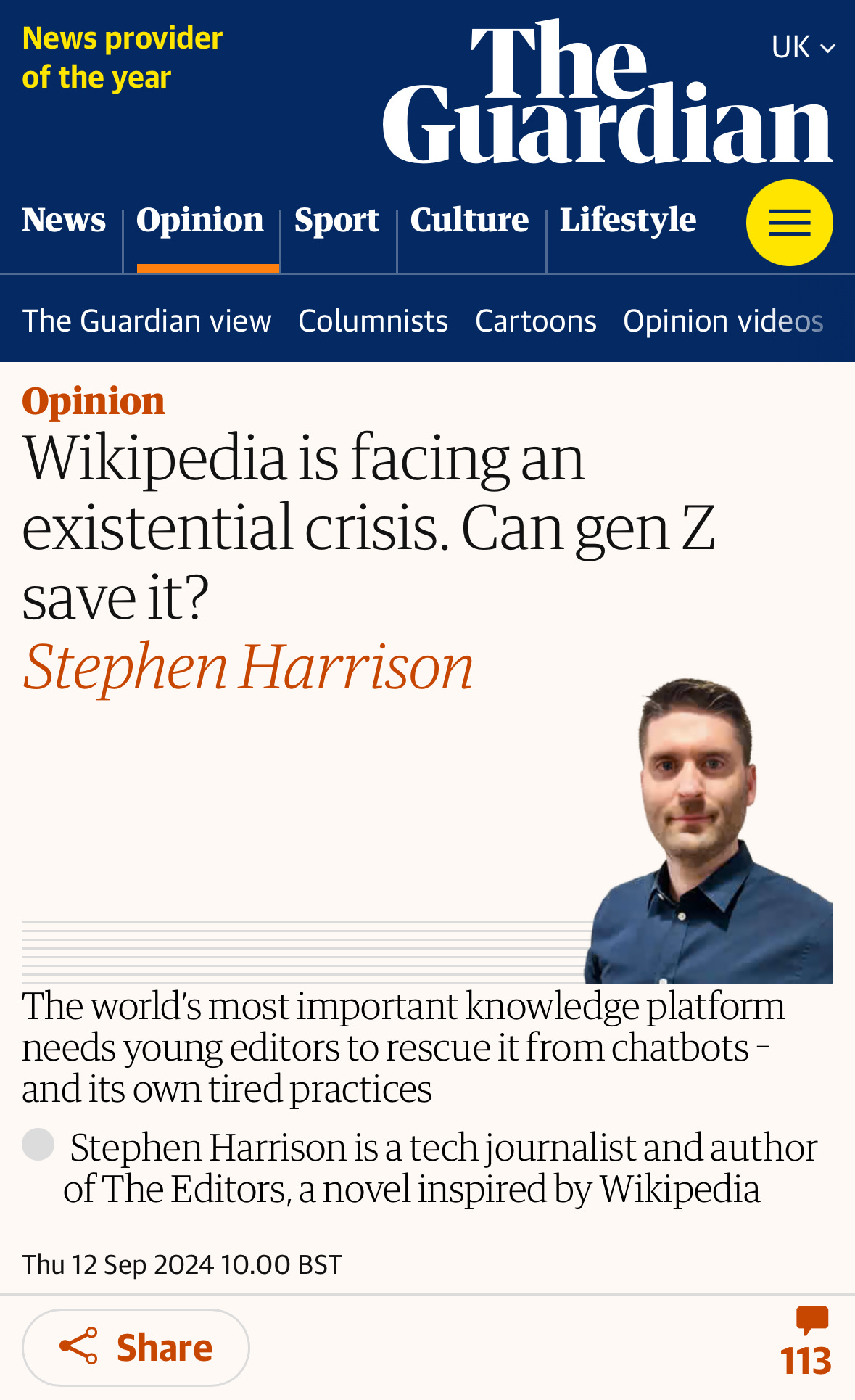Can Gen Z Save Wikipedia?
Beyond AI's shortcomings, there is a great human benefit to Gen Z's increased participation on Wikipedia.

Established in 2001, Wikipedia is an “old man” by internet standards. But the role it plays in our collective knowledge of the world remains astonishing. Content from the free internet encyclopedia appears in everything from high-school term papers and pub trivia questions to search engine summaries and voice assistants. Tools like Google’s AI Overviews and ChatGPT rely heavily on Wikipedia, although they rarely credit the site in their responses.
And therein lies the problem: as Wikipedia’s visibility diminishes, reduced to mere training data for AI applications, it also loses prominence in the minds of readers and potential contributors. When someone notices a topic that is poorly described on Wikipedia, they might feel motivated to correct it. But this can-do spirit goes away when the error comes through an AI summary, where the source of the information isn’t clear.
In Katowice, Poland, at last month’s annual Wikimania conference – an event that feels a bit like an international summit of librarians crossed with Comic-Con – many of the speakers highlighted how Wikipedia faces an existential threat of fading into obscurity or disrepair. But there was also talk of a solution that may help secure Wikipedia’s future, or at least prevent its premature demise: recruiting more younger editors from generation Z and raising their awareness of how widely Wikipedia content is used across the internet.
Wikipedia operates on a model of unpaid and independent volunteers who create, update and maintain the content. Casual editors may make minor stylistic edits to a page, while others devote substantial time creating full-fledged articles. A significant number of Wikipedia contributors are already gen Z; according to a 2022 survey, about 20% of Wikipedia editors are between ages 18 and 24. Although this is roughly reflective of the global population, there is a clear desire to increase this percentage.
As a tech writer who has extensively researched Wikipedia for my book The Editors, I have often heard the same handful of issues that dissuade the younger generation from joining the cause. First and foremost, the smartphone is gen Z’s preferred internet access device, but it’s not an easy tool for editing Wikipedia. Even the savviest digital natives find it frustrating to edit the encyclopedia with a small screen.
There are exceptions. Hannah Clover, a 22-year-old Canadian, was the youngest ever winner of “Wikimedian of the Year”, awarded at last month’s Wikimania. She also happens to be a rare breed: a highly prolific Wikipedian who has made more than 75% of her edits using mobile devices. A lot of those were edits she made on the go, while commuting on the bus or during shift breaks at her former job at McDonald’s. For Clover, adding to the global encyclopedia helped provide a sense of purpose. “Serving ice-cream to people isn’t really that much of a world-changing endeavour,” she told me. Clover as recommended improvements to the Wikipedia mobile app, including the ability to create new articles and a visual editor that doesn’t require any coding skills.
Keep Reading > > >
Best,
Stephen
P.S. The Editors is now available for Kindle in the U.K.


